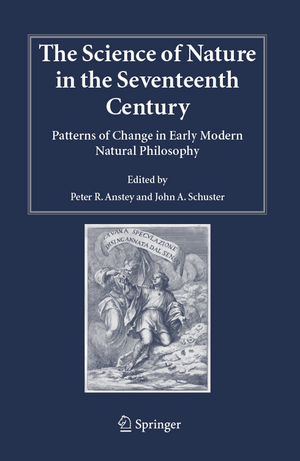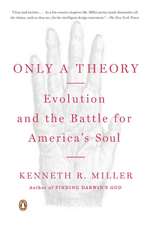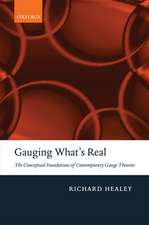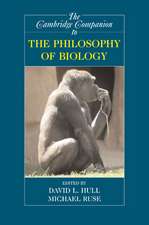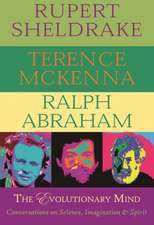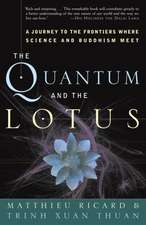The Science of Nature in the Seventeenth Century: Patterns of Change in Early Modern Natural Philosophy: Studies in History and Philosophy of Science, cartea 19
Editat de Peter R. Anstey, John A. Schusteren Limba Engleză Hardback – 23 dec 2005
| Toate formatele și edițiile | Preț | Express |
|---|---|---|
| Paperback (1) | 638.76 lei 43-57 zile | |
| SPRINGER NETHERLANDS – 22 oct 2010 | 638.76 lei 43-57 zile | |
| Hardback (1) | 647.40 lei 43-57 zile | |
| SPRINGER NETHERLANDS – 23 dec 2005 | 647.40 lei 43-57 zile |
Din seria Studies in History and Philosophy of Science
- 15%
 Preț: 650.19 lei
Preț: 650.19 lei - 15%
 Preț: 700.75 lei
Preț: 700.75 lei -
 Preț: 284.47 lei
Preț: 284.47 lei - 15%
 Preț: 702.24 lei
Preț: 702.24 lei -
 Preț: 389.88 lei
Preț: 389.88 lei - 18%
 Preț: 1222.94 lei
Preț: 1222.94 lei - 15%
 Preț: 647.08 lei
Preț: 647.08 lei - 15%
 Preț: 645.47 lei
Preț: 645.47 lei - 18%
 Preț: 956.33 lei
Preț: 956.33 lei - 18%
 Preț: 953.97 lei
Preț: 953.97 lei - 15%
 Preț: 646.11 lei
Preț: 646.11 lei - 15%
 Preț: 641.85 lei
Preț: 641.85 lei - 15%
 Preț: 644.49 lei
Preț: 644.49 lei - 18%
 Preț: 951.29 lei
Preț: 951.29 lei - 18%
 Preț: 953.20 lei
Preț: 953.20 lei - 18%
 Preț: 946.87 lei
Preț: 946.87 lei - 18%
 Preț: 1384.56 lei
Preț: 1384.56 lei - 18%
 Preț: 1234.14 lei
Preț: 1234.14 lei - 15%
 Preț: 637.78 lei
Preț: 637.78 lei - 15%
 Preț: 633.53 lei
Preț: 633.53 lei - 18%
 Preț: 1219.77 lei
Preț: 1219.77 lei - 24%
 Preț: 586.94 lei
Preț: 586.94 lei - 18%
 Preț: 967.56 lei
Preț: 967.56 lei - 15%
 Preț: 641.38 lei
Preț: 641.38 lei - 15%
 Preț: 642.68 lei
Preț: 642.68 lei - 15%
 Preț: 642.03 lei
Preț: 642.03 lei - 15%
 Preț: 641.85 lei
Preț: 641.85 lei
Preț: 647.40 lei
Preț vechi: 761.65 lei
-15% Nou
Puncte Express: 971
Preț estimativ în valută:
123.88€ • 129.67$ • 103.11£
123.88€ • 129.67$ • 103.11£
Carte tipărită la comandă
Livrare economică 31 martie-14 aprilie
Preluare comenzi: 021 569.72.76
Specificații
ISBN-13: 9781402036033
ISBN-10: 1402036035
Pagini: 260
Ilustrații: XII, 250 p.
Dimensiuni: 156 x 232 x 16 mm
Greutate: 0.61 kg
Ediția:2005
Editura: SPRINGER NETHERLANDS
Colecția Springer
Seria Studies in History and Philosophy of Science
Locul publicării:Dordrecht, Netherlands
ISBN-10: 1402036035
Pagini: 260
Ilustrații: XII, 250 p.
Dimensiuni: 156 x 232 x 16 mm
Greutate: 0.61 kg
Ediția:2005
Editura: SPRINGER NETHERLANDS
Colecția Springer
Seria Studies in History and Philosophy of Science
Locul publicării:Dordrecht, Netherlands
Public țintă
ResearchCuprins
The Onset of the Scientific Revolution.- ‘Waterworld’: Descartes’ Vortical Celestial Mechanics.- Circular Argument.- From Mechanics to Mechanism.- The Autonomy of Natural Philosophy.- Physico-Theology and the Mixed Sciences.- The Saturn Problem.- Experimental Versus Speculative Natural Philosophy.
Textul de pe ultima copertă
The seventeenth century marked a critical phase in the emergence of modern science. But we misunderstand this process, if we assume that seventeenth-century modes of natural inquiry were identical to the highly specialised, professionalised and ever proliferating family of modern sciences practised today.
In early modern Europe the central category for the study of nature was ‘natural philosophy’, or as Robert Hooke called it in his Micrographia, the Science of Nature. In this discipline general theories of matter, cause, cosmology and method were devised, debated and positioned in relation to superior disciplines, such as theology; cognate disciplines, such as mathematics and ethics; and subordinate disciplines, such as the ‘mixed mathematical sciences’ of astronomy, optics and mechanics.
Thus, the ‘Scientific Revolution’ of the Seventeenth Century did not witness the sudden birth of ‘modern science’ but rather conflict and change in the field of natural philosophy: Aristotelian natural philosophy was challenged and displaced, as thinkers competed to redefine natural philosophy and its relations to the superior, cognate and subordinate disciplines. From this process the more modern looking disciplines of natural science emerged, and the idea of a general Science of Nature suffered a slow demise.
The papers in this collection focus on patterns of change in natural philosophy in the seventeenth century, aiming to encourage the use and articulation of this category in the historiography of science. The volume is intended for scholars and advanced students of early modern history of science, history of philosophy and intellectual history. Philosophers of science and sociologists of scientific knowledge concerned with historical issues will also find the volume of relevance. Above all, the volume is addressed to anyone interested in current debates about the origin and nature of modern science.
In early modern Europe the central category for the study of nature was ‘natural philosophy’, or as Robert Hooke called it in his Micrographia, the Science of Nature. In this discipline general theories of matter, cause, cosmology and method were devised, debated and positioned in relation to superior disciplines, such as theology; cognate disciplines, such as mathematics and ethics; and subordinate disciplines, such as the ‘mixed mathematical sciences’ of astronomy, optics and mechanics.
Thus, the ‘Scientific Revolution’ of the Seventeenth Century did not witness the sudden birth of ‘modern science’ but rather conflict and change in the field of natural philosophy: Aristotelian natural philosophy was challenged and displaced, as thinkers competed to redefine natural philosophy and its relations to the superior, cognate and subordinate disciplines. From this process the more modern looking disciplines of natural science emerged, and the idea of a general Science of Nature suffered a slow demise.
The papers in this collection focus on patterns of change in natural philosophy in the seventeenth century, aiming to encourage the use and articulation of this category in the historiography of science. The volume is intended for scholars and advanced students of early modern history of science, history of philosophy and intellectual history. Philosophers of science and sociologists of scientific knowledge concerned with historical issues will also find the volume of relevance. Above all, the volume is addressed to anyone interested in current debates about the origin and nature of modern science.
Caracteristici
One of few books to take seriously the early modern category of "natural philosophy" as the field and activity in which knowledge of nature was pursued and contested Chapters cover key dimensions of the dynamics of the field of natural philosophy, hence promote use and articulation of this important concept in historiography of science Chapters are by leading internationally reputed experts in their respective specialities, focused on theme of changing patterns in and dynamics of natural philosophy in the 17th century
